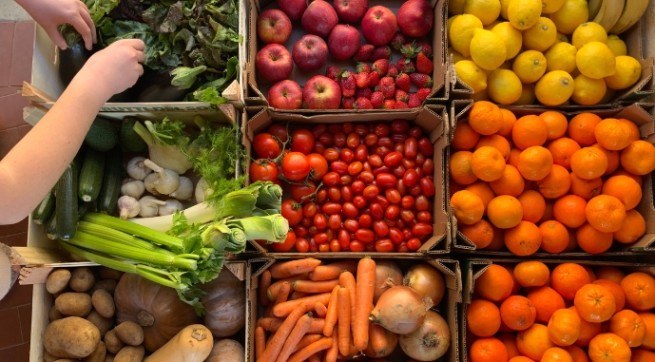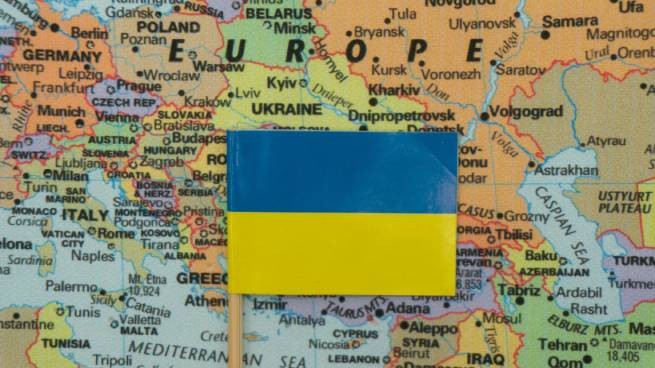About four million Ukrainians have found refuge in countries EU after a full-scale Russian invasion of their country. Is the European Union interested in bringing them home? “The EU understands: Ukraine wants to return its people after the war.”
BB.LV tellsthat in order to quickly accept such a number of refugees from warring Ukraine, 27 EU member states in March 2022 urgently decided to apply the Temporary Protection Directive, which was first put into effect after its adoption in 2001.
Temporary protection status provides citizens of Ukraine with virtually immediate access to the social protection system, labor market, housing, education, and medical services in the European country that has sheltered them.
A year later, in March 2025, the directive expires, so both Kiev and Brussels began to think about what opportunities should be offered to Ukrainians living in EU member states after this date. But, as it turned out, the European Union and Ukraine have different interests and positions on this matter.
Ukraine wants to return refugees. Kyiv is interested in as many Ukrainian citizens as possible returning home as soon as possible – this will contribute to the restoration of the country. And not after the end of the war, but right now, while hostilities continue. Advisor to the head of the Office of the President of Ukraine Sergei Leshchenko even suggested that EU countries stop paying social assistance to Ukrainian refugees in order to thus facilitate their return home. The German TV channel ARD decided to find out the position of the President of Ukraine by asking him about it, and received the answer:
“It would be better if Germany helped Ukrainians by giving money to the Ukrainian budget, and then Ukraine redistributed this money depending on where the person is located.”
Olga Stefanishyna, Deputy Prime Minister for European and Euro-Atlantic Integration, said during her visit to Brussels that discussions continue between Ukraine and the EU about the prospects for the return of Ukrainians to their homeland:
“This is a very difficult issue to discuss. It is definitely not the direct position of Ukraine that Ukrainians should return back, and therefore some kind of assistance should be reduced to them – absolutely not.”
Informal discussions about alternatives to temporary protection status for Ukrainian refugees continue both within individual EU member states and at the level of the entire European Union. At the end of February, an informal meeting of the EU Council on Justice and Home Affairs took place, at which the Belgian Secretary of State for Asylum and Migration, Nicole de Moor, noted:
“The war in Ukraine is far from over, but good politicians must be prepared for the future. Even if we don’t know what the situation will be in March 2025, we must prepare for different scenarios – in the interests of our friends in Ukraine and in the interests of people who left Ukraine.”
Data from a study conducted by the UN Refugee Agency shows that among adult refugees from Ukraine, 86% were women, of which 84% were of working age. The results of a survey by the EU Asylum Agency (EUAA), released in October 2023, showed that among the four thousand Ukrainian refugees surveyed, “more than two-fifths had a master’s degree or equivalent, one-fifth had a bachelor’s degree, and 4% had advanced degrees.”
Vit Novotny, senior researcher at the Wilfried Martens Center for European Studies, notes that Ukrainian refugees in the EU have higher professional qualifications and education than the local population, and given their cultural characteristics, they assimilate better and faster than other refugee groups, the publication quotes DW:
“Combined with the growing labor shortage in the EU, the interest of European countries in keeping Ukrainian workers here is obvious.”
Zsolt Darvash, a senior researcher at the Brussels think tank Bruegel, is convinced of the same thing – the EU will benefit:
“Ukrainian refugees, who are predominantly women and children, have a good chance of gradually integrating into the European labor market, because this process has already begun. Their children are already going to schools in European countries, many of them will begin to acquire different professions here. Therefore, from the point of view of the prospects for the European economy, it will be very positive if these refugees remain.”
However, the desire of the Ukrainian authorities to return their citizens home is quite understandable – given the negative demographic trends in Ukraine, which were observed even before the start of a full-scale war, notes Zsolt Darvash. First of all, we are talking about reducing the number of people of working age:
“And if, after the great shock caused by the war, several million Ukrainians do not return to the country, this will be a real disaster for Ukraine.”
The EU understands that a stable and prosperous post-war Ukraine, which begins negotiations on joining the bloc, is in the interests of the European Union itself, Vit Novotny from the Wilfried Martens Center for European Studies is convinced:
“So the desire to retain labor is balanced by the understanding among EU policymakers that when the war is over, Ukraine will want to rebuild, and to do this it will need to get its people back. However, which of these two impulses will be stronger is difficult to predict.”
The fact that authorities in different EU member states may have different interests and positions regarding refugees from Ukraine complicates forecasts. General discussions on this issue are ongoing, but it is not yet clear whether member states will find a common solution, says Novotny:
“So we will either have an EU policy on what legal status to give Ukrainian refugees, or 27 different national ways to legalize their stay.”
Apparently, says Zsolt Darvash from the Bruegel think tank, when making decisions regarding Ukrainian refugees after the end of the Temporary Protection Directive, the determining factor for the authorities of individual countries will be the success of Ukrainians in integration. First of all, will people be able to find stable work by that time:
“If there are no problems with this, then I think there will be a big temptation to allow these people to stay in the country. In this case, refugees in need of social support will most likely continue to receive it.”
Both the EU institutions and its member countries should join in making decisions and developing appropriate measures regarding the future of Ukrainian refugees, notes Lithuanian MEP Rasa Juknevičienė. In a conversation with DW journalists, she said:
“I am glad that Kyiv is also an active part of the dialogue. This is a sensitive issue and we need to find a good balance between different needs and goals.”
She believes that all sides of the debate have an interest in Ukrainians being able to maintain ties with Ukraine and contribute to its economy and recovery: “We all want a strong and prosperous Ukraine.”
However, the MEP recalled that freedom of movement is one of the main principles of the EU: “And as Ukraine gets closer to the EU, our task will be to develop a mechanism that respects the choices of individual Ukrainians, while contributing to the prosperity and recovery of Ukraine.”







More Stories
The Minister of Health called the protesters "insignificant people, kafirs"
Gold Switzerland: “We are in the last 5 minutes of our financial system – the collapse of everything is approaching”
Union of Judges: “People’s courts were created against us with the loyal attitude of the government”